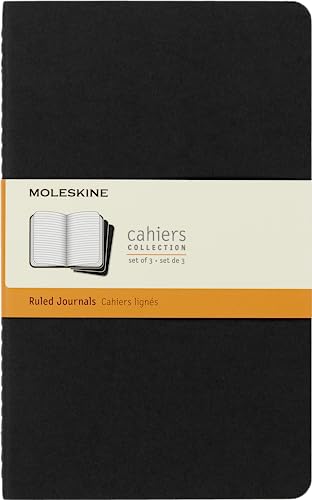Personal writing has long been acknowledged as a potent tool for personal development, assisting in self-awareness and improvement. The practice involves expressing your thoughts, emotions, and experiences on paper, which gives you a tangible way to analyse and understand your life. Guided journaling prompts for self improvement can play a pivotal role in guiding these reflections. They allow a more focused exploration of different areas of your life for personal transformation, and can greatly improve mental health.
While it may sound hockey at first, I know first-hand that it’s possible to journal yourself out of a really bad patch and get your life right again. Or even kick a drinking habit like I did. There is something extremely therapeutic and magical about putting your pen to paper and letting your stream of consciousness flow.
For me personally, the trick has been to sit down and just start writing without an agenda. But for many, a blank page of paper can feel intimidating, almost as if you’re back in school having to take a test. This is where journal prompts can come in handy. Read on, and be sure to grab your free PDF printable of prompts further below!
Table of Contents
The Power of Journal Prompts for Personal Growth
Journal prompts are carefully formulated questions or statements aimed at provoking thought and inspiring introspection. They act as signposts, guiding you in identifying patterns, setting goals, and crystallising your life values. These deep journal prompts for personal growth highlight themes and patterns that you might otherwise overlook, and can provide insights into your behavioural tendencies and emotional responses.
For instance, by utilising self-development journal prompts, you might notice that certain situations consistently lead to feelings of anxiety, or that you struggle with setting boundaries in relationships. Acknowledging these patterns is a first step towards personal progression, leading you to devise strategies to address these issues and cultivate healthier habits.
One of the main advantages of using journaling prompts for self improvement is their ability to assist in goal setting and progress tracking. Because these prompts will help clarify your core values and priorities, they can act as a roadmap for your development. Plus, they aid in brainstorming strategies to overcome obstacles or limiting beliefs that could potentially make for a rocky path towards self-betterment.
The beauty of personal chronicaling is that it gives you the opportunity to revisit your entries and reflect on your progress at any point in time. It can give you a sense of accomplishment when you realise how far you’ve come, and also help you pinpoints areas that still need more focus.
The Therapeutic Benefits of Keeping a Personal Growth Journal
The most notable benefit of guided prompts for self-discovery and personal development is their capacity to reveal recurring themes in your life. By regularly working with these prompts, you gradually peel back layers of your subconscious. This in turn can expose previously unidentified patterns in your thoughts, emotions, and behaviours.

Ultimately, this heightened degree of self-awareness can lead to a deeper understanding of the causes behind your actions, creating pathways and helping you make decisions for positive changes in your life.
Another powerful aspect of journal prompts lies in their ability to help you set goals (and stick with them!). Formulating your responses to these prompts allows you to clearly articulate your ambitions, dreams, and aspirations, which is a crucial first step in any journey to self-growth.
As you make reflective writing part of your daily routine, it becomes easier to set specific, measurable, achievable, relevant, and time-bound (SMART) goals. And this increases your chances of success.
Journal prompts not only help you set goals; they make it easier to track your progress towards them. Penning your thoughts, feelings, and experiences in response to prompts creates a record of your personal growth journey. Again, by revisiting your entries periodically, you come to appreciate the strides you’ve made, understand areas for improvement, and can adjust your behaviour or strategies as needed.
What I also like about journal prompts is they help clarify your values because they act as a mirror reflection of your true beliefs and principles. By writing on a regular basis, you discover what matters to you, and this subsequently helps you prioritize your efforts in alignment with your core values.
In short, leveraging journal prompts leads to personal enlightenment, a more intentional and purposeful life. Whether you’re a seasoned journaler or just starting journaling for self-reflection, I think integrating some journal prompts for personal development into your daily routine can help you become a better version of yourself.
Advantages of Self Improvement Journal Prompts
Keeping a diary, especially when combined with insightful journal prompts, yields a wide range of benefits that contribute to self-improvement. These advantages span from mental health to personal growth and even cognitive enhancements.
Firstly, diary keeping can be a powerful tool for stress and anxiety reduction much like decluttering can. When I was going through an extremely bad breakup, writing helped me navigate those awfully stormy waters. I could write out all my anger and disappointment without having to explain myself to anyone but myself.
Writing down your thoughts, fears, and frustrations lets you do a sort of “brain dump,” effectively freeing up mental space.
Let your thoughts freely flow; don’t edit, don’t mind grammar or style – just write.
This cathartic process of journaling can help you release bottled-up emotions, and that alone can provide at least a small sense of relief. It’s kind of like doing your own private therapy session on paper.
In addition to mitigating stress, writing is great for heightening your self-awareness and becoming a better person as I discussed above. By responding to prompts, you’re delving deeper into your psyche and this helps you understand your own feelings and behaviours. The whole process can help contribute to a positive shift in your mindset.
Driving Personal Insights

As a vehicle for self-awareness, journaling is also instrumental in setting and achieving goals. Writing down your aspirations transforms them from abstract concepts into tangible targets.
By committing your goals to paper, you reinforce their importance in your mind, thus making it more likely that you will take the necessary steps to achieve them. Plus, as you make progress, your journal serves as a record of how far you’ve come, reinforcing a sense of accomplishment and motivation.
Another unexpected but welcome benefit of writing is the boost to creativity it provides. Regularly jotting down your thoughts encourages free thinking and problem solving, allowing for the generation of new ideas and solutions. This creative stimulation can extend beyond the pages of your personal growth journal, and influence other areas of your life as well.
Finally, reflective writing can have a positive impact on your memory. The act of writing helps to reinforce memories in your brain, thus improving your ability to recall details. Over time, your journal transforms into a treasure trove of past experiences, thoughts and lessons, serving as a valuable resource to reflect upon and learn from.
In a nutshell, integrating journaling into your daily routine can have profound effects on your path to self discovery. Whether it’s stress reduction, enhanced self-awareness, goal achievement, creativity stimulation, or memory improvement, the benefits of maintaining a self-improvement journal are many.
How to Start Journaling
The process of starting a journal can be as easy as picking up a pen and paper, but you’ll get more out of it with a bit of forethought, intention, and commitment. Here are a few considerations to get going with a regular writing habit.
Choosing Your Personal Growth Journal

What do you want to write in? Pick a notebook you like – there are tons of options available in all different sizes, from simple lined diaries to elaborate bullet journals. Do you write better on unlined, lined or graph paper? Or do you prefer writing a lot of lists to organise your thoughts?
If you travel a lot like I do, you might want to opt for a smaller size. I only use one type of notebook for my journals, and I absolutely love that it has a little inside pocket, too: the Moleskine cahier soft cover. It comes in a pack of three, so I always have a backup ready when I run out of paper.
Whether you like writing with a fountain pen, pencil, ballpoint or gel pen totally comes down to personal preference. For over ten years now, my go-to has been the Pilot G2 gel pen. I absolutely love how it glides over paper, and don’t like writing with anything else!
Whatever your paper and ink preference, the key is to choose utensils that make you happy about writing!
Are Digital Journals an Option?
There’s an undeniable charm and intimacy in the tactile experience of putting pen to paper, but that’s not the main reason I say it’s better to use a physical journal.
Unlike digital journaling, traditional written journaling encourages a slower, more deliberate reflection process, fostering deeper introspection. The physical act of writing can stimulate neural pathways, aid memory retention and conceptual understanding. Handwritten journals are free from digital distractions—there are no app notifications or internet rabbit holes to divert your attention.
They also offer a private sanctuary, a personal space untouched by the web’s privacy invasions. When you write on paper, there’s no risk of data breaches or unauthorized digital access.
Setting Your Goals
Before you take the time to write, set yourself a goal or two for your kind of writing. Don’t feel like you have to set everything in stone though. You’re just looking for a rough roadmap to help you find your way in writing.
Things to ponder: What areas of your life do you want to focus on? What aspects of yourself do you wish to improve or understand better? Do you just want to vent feelings and emotions? Or maybe get your chaotic life more organised?
Think about what incited you in the first place to look for journaling prompts for self improvement.
I like to pick a keyword every so often, sort of an overarching classifier for what I’m currently occupied with. I write it at the top of each page in my notebook and change it when it no longer serves me.
Some examples I’ve used this year include “virtue,” “pragmatism,” and “duties.” This doesn’t mean I write about these things specifically, but there is usually a correlation to what I write about.
Types of Prompts
The best journaling prompts for self-improvement typically fall into three categories: reflective prompts, goal-oriented prompts, and mindfulness prompts.
Reflective prompts are designed to help you look back on your experiences, thoughts, and feelings. They allow you to explore them in-depth, promoting self-awareness and understanding. This works best with a “what-why” formula such as “what event from today stands out, and why?”
Goal-oriented prompts, on the other hand, are all about looking forward and planning for the future. They help you set goals, strategise on how to achieve them, and evaluate your progress. An example of a goal-oriented prompt: “what steps can I take tomorrow to move closer to my goal?”
Mindfulness prompts encourage you to live in the present moment. They can help you cultivate a sense of peace and acceptance, enhancing your daily well-being. An example of a mindfulness prompt is, “What can I hear, see, feel, and smell right now?”
The type of journaling prompt you use can vary. By incorporating a mix of these three types of prompts, your writing will cover the bases of personal growth and self-discovery.
You can download my printable of journal prompts to help you get going, or create your own based on your individual needs and goals. Don’t forget that the most effective journal prompts are those that resonate with you personally and challenge you to grow.
Don’t Mind Productivity, Just Make Daily Journaling a Routine
Once you’re equipped with a journal and some ideas for prompts, the next phase involves integrating daily journaling into your everyday routine. This isn’t a productivity race, but writing on a regular basis can yield deep insights and boost your self-esteem.
Methods for Making Reflective Writing a Habit
Forming new habits takes some perseverance and dedication. Begin the process by setting a feasible objective, like writing for ten minutes daily. If you like, you can progressively extend this period as you grow more at ease with the practice. You can also just stick to a few minutes.
Either way, I’ve found it helps to designate a specific time of the day to write. For me, that means I journal in the morning. Still a bit groggy and armed with a pot of coffee, I like to do morning pages before showering.
Don’t fret if on some days you lack the enthusiasm to write – the key is not to force yourself. Instead, aim to make journaling a calming part of your everyday self-care.
Suggested Schedule and Routine
A good strategy for simple habit creation is associating your new practice with a pre-existing one. Forming habits can take a month or so, so go easy on yourself and stay positive even if you miss a day or two. The crux of self-improvement and personal advancement is regularity, not flawlessness.

Whether you’re a morning person or a night owl, identifying the most suitable time to journal is helpful to build your new writing habit. Some like me find journaling in the morning beneficial to set daily intentions and gain clarity. Others write before bed as a tool to unwind and reflect on the day.
Try out different times if you’re unsure what suits you best. You don’t want writing to feel like a chore, but rather, a nice component of your daily self care routine.
Integrating journaling into your day-to-day life gives you a dedicated slot each day to concentrate on your development, aids in prioritising your well-being, and allows you to investigate different facets of your life in a structured and intentional manner. These strategies will set you on a path towards establishing a regular journaling routine and benefiting from its transformative rewards.
Journaling Help: Overcoming Writer’s Block
Just like any new habit, you might encounter difficulties when beginning to journal for personal advancement. Writer’s block and regularity are probably the two biggest concerns. Don’t feel disheartened though; these obstacles are easy to work around.
If you’re struggling to articulate your thoughts, don’t stress – writer’s block is a common issue that even seasoned journalers occasionally face.
When I’m not working with prompts, the biggest help for me is to just put the pen to paper even if I don’t know what I want to write. You can start with a line about how you slept, what you’re feeling, or what happened yesterday. Then it just flows from there.
When you’re utilising personal growth journal prompts though, you’ll encounter less writer’s block. They serve as your guide to writing and assist you in exploring your thoughts and emotions from various perspectives.
Freewriting is another technique to combat writer’s block. It’s the sort of “brain dumping” I mentioned above where you note down everything that comes to your mind without worrying about organisation, grammar, style, or coherence. This practice can help your thoughts to flow freely and overcome your initial impediment.
Again, life can get hectic. So don’t beat yourself up if you miss a day or a few. Just pick up where you left off. Each entry brings you one step further on your journey of self-discovery.
Assessing Your Personal Growth Journal Prompts
Set aside time occasionally to review some entries and gauge how you’re doing. Reflection is a powerful part of the process overall. Here’s how you can effectively review your prompts and journal entries:
- Regularly allocate time for review: You could choose to review your journal entries weekly, monthly, or at an interval that suits you best. This regularity can help you identify patterns, changes, and growth over time.
- Read with an open mind: As you review, you might encounter entries that trigger various emotions. Approach these with an open mind and self-love, remembering that growth originates from acknowledging all aspects of your experience, not just the pleasant ones.
- Highlight key insights: When reading back entries, highlight or note any key insights or revelations that stand out to you. These could relate to patterns in your thoughts or behaviour, newfound understanding of your values, or progress you’ve made towards your objectives.
- Cull your prompts: Are they still serving you? If not, formulate some new ones or grab my printable for a fresh batch to work with.

Identifying Areas for Further Focus and Growth
Reviewing your journal can unveil areas that require more focus. Perhaps you’ve noticed recurring negative thoughts or lack of progress in a certain area. Here’s how you can use your journal to identify these areas for improvement:
- Look for recurring themes: If you observe a theme or issue appearing frequently in your entries, that could be a sign that it’s an area where you could concentrate more effort.
- Pay attention to your emotions: Pay heed to entries that incite strong feelings. These can provide affirmation of the facets of your life that you feel passionate about improving.
- Reflect on your objectives: Compare your current state with the goals you’ve noted in your journal. If there are objectives you’re not making progress on, these might be areas to concentrate on.
By gauging your progress through reviewing your entries, you’ll have a clearer understanding of where you stand. It also offers you the chance to adjust your goals and strategies, if needed, making your journal a versatile and potent tool for self-awareness.
Use Your Journal Prompts for Continuous Self-Discovery and Personal Growth
Reflective writing is more than a daily routine or a simple exercise in self-reflection; journaling is a great transformative tool that holds the potential to catalyse profound personal growth and insights.
By writing, you’re fostering self-awareness, improvement and positive affirmations. Identifying patterns and themes in your life, setting and tracking your goals, and clarifying your values empowers you to engage in dialogue with your authentic self.
In summary, journaling has a multitude of other benefits, too. It can serve as a stress and anxiety reduction tool, boost your creativity, and even improve your memory. These advantages are amplified when you incorporate effective writing prompts into your practice. Prompts can facilitate deeper self-reflection and insight, helping you grow as a person.
Download My Journaling Prompts for Self Improvement to Get Started
Building a writing habit doesn’t have to be intimidating or time-consuming. Whether you’re a seasoned journaler or new to the practice, there’s no wrong way to approach it. The most important step is simply to start journaling, with a clear understanding of your goals and a willingness to explore your thoughts and feelings.
Remember, maintaining a journal requires consistency, but don’t worry if you experience challenges such as writer’s block. There are strategies to overcome these hurdles and make journaling a daily habit. It’s all part of the journey.
Download your free PDF printable of prompts 🖋️
Download my free journal prompts printable to start your writing habit. I’m sure you’ll like how writing a few minutes a day makes you feel less stuck in life, and I hope these journal prompts help you get going.
Self improvement is a journey and becoming a better version of yourself is a process. The good thing is that you can start at any point in your life. Harness the power of prompts and explore the possibilities they hold for personal growth and self-improvement.
Happy writing!




























Leave a Reply